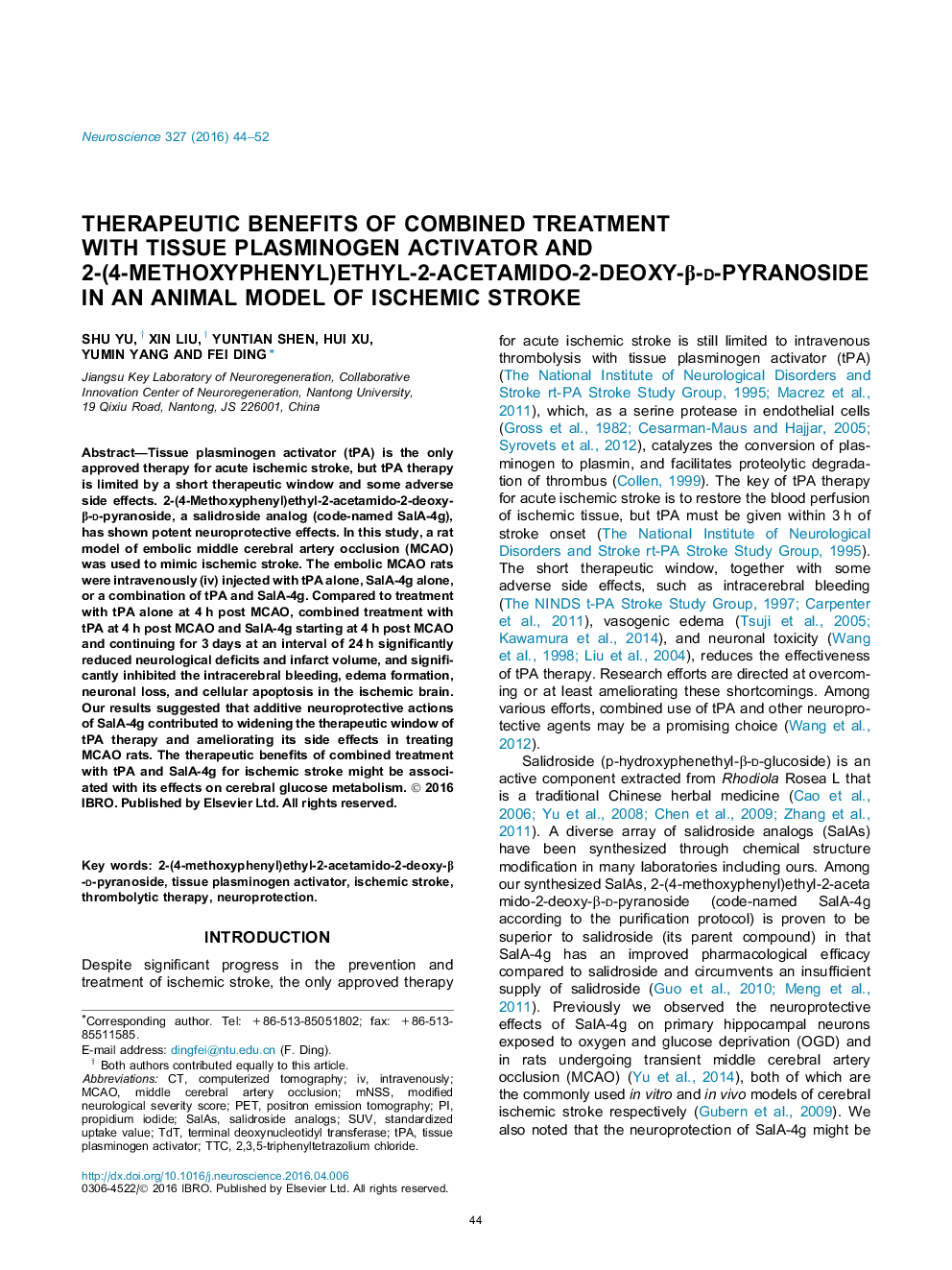| Article ID | Journal | Published Year | Pages | File Type |
|---|---|---|---|---|
| 6271336 | Neuroscience | 2016 | 9 Pages |
Abstract
Tissue plasminogen activator (tPA) is the only approved therapy for acute ischemic stroke, but tPA therapy is limited by a short therapeutic window and some adverse side effects. 2-(4-Methoxyphenyl)ethyl-2-acetamido-2-deoxy-β-d-pyranoside, a salidroside analog (code-named SalA-4g), has shown potent neuroprotective effects. In this study, a rat model of embolic middle cerebral artery occlusion (MCAO) was used to mimic ischemic stroke. The embolic MCAO rats were intravenously (iv) injected with tPA alone, SalA-4g alone, or a combination of tPA and SalA-4g. Compared to treatment with tPA alone at 4 h post MCAO, combined treatment with tPA at 4 h post MCAO and SalA-4g starting at 4 h post MCAO and continuing for 3 days at an interval of 24 h significantly reduced neurological deficits and infarct volume, and significantly inhibited the intracerebral bleeding, edema formation, neuronal loss, and cellular apoptosis in the ischemic brain. Our results suggested that additive neuroprotective actions of SalA-4g contributed to widening the therapeutic window of tPA therapy and ameliorating its side effects in treating MCAO rats. The therapeutic benefits of combined treatment with tPA and SalA-4g for ischemic stroke might be associated with its effects on cerebral glucose metabolism.
Keywords
TdTmNSStPATTCMCAO2,3,5-triphenyltetrazolium chloridemiddle cerebral artery occlusionterminal deoxynucleotidyl transferasecomputerized tomographyPositron emission tomographyintravenouslyThrombolytic therapyIschemic stroketissue plasminogen activatorSUVNeuroprotectionstandardized uptake valuemodified neurological severity scorePETPropidium iodide
Related Topics
Life Sciences
Neuroscience
Neuroscience (General)
Authors
Shu Yu, Xin Liu, Yuntian Shen, Hui Xu, Yumin Yang, Fei Ding,
